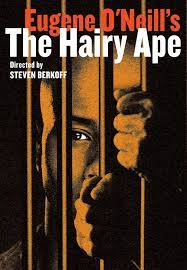Who is Eugene O' Neil

Eugene O'Neill (1888-1953) was an American playwright, best known for his contributions to the development of modern American theatre. Born in New York City, O'Neill grew up in a troubled family and had a difficult childhood, which would later inform much of his writing. After serving in the merchant marine, he began writing plays in the 1910s and quickly established himself as a major voice in the American theatre.
O'Neill is considered one of the greatest playwrights in American history, and his work transformed the American theatre by bringing psychological realism and deep emotional intensity to the stage. He was known for his bleak, often dark, and introspective dramas, which often explored themes of family, identity, and the human condition.
Some of O'Neill's most famous works include "Long Day's Journey Into Night," "The Iceman Cometh," "A Moon for the Misbegotten," and "A Touch of the Poet." These plays are widely regarded as masterpieces of American theatre, and they continue to be widely performed and studied today.
O'Neill won four Pulitzer Prizes for Drama and was awarded the Nobel Prize in Literature in 1936, making him the only American playwright to receive the prestigious award. He remains one of the most influential figures in the history of American theatre, and his work continues to inspire and captivate audiences around the world.
Brief introduction of The Hairy Ape:-
"The Hairy Ape" is a play written by Eugene O'Neill, first performed in 1922. It is a modernist work that explores the theme of identity and the search for belonging. The play follows the journey of Yank, a rough and brutal steamship stoker who feels a deep sense of alienation from the world around him. Yank is comfortable in his role as a "hairy ape," a symbol of industrial strength and power, but he is deeply unhappy with the way society views and treats him.
As the play progresses, Yank's search for meaning and identity takes him on a journey through various social and class divides, including the world of the wealthy and the world of the working class. Along the way, he encounters various characters who challenge his understanding of himself and his place in the world.
"The Hairy Ape" is considered a masterpiece of modern American theatre, and its powerful exploration of the human condition and the search for identity continues to captivate audiences today. The play is known for its raw, intense language and its vivid, symbolic imagery, which convey O'Neill's vision of the dehumanising effects of modern industrial society.
Summary:-
The main themes in "The Hairy Ape" by Eugene O'Neill include identity, alienation, class struggle, and the dehumanising effects of modern industrial society.
The play's protagonist, Yank, is a brutish and uneducated steamship stoker who feels alienated from the world around him. He is comfortable in his role as a "hairy ape," a symbol of industrial strength and power, but he is deeply unhappy with the way society views and treats him. Yank's search for meaning and identity takes him on a journey through various social and class divides, including the world of the wealthy and the world of the working class.
Throughout the play, O'Neill explores the theme of alienation and the dehumanising effects of modern industrial society. Yank feels like he doesn't belong in any social or class group, and his struggles to find a sense of identity and purpose reflect the broader sense of alienation and loneliness that many people experience in modern industrial society.
The play also explores the theme of class struggle, as Yank moves through different social and class divides and encounters characters who have different attitudes and beliefs about him. O'Neill uses Yank's journey to highlight the divisions and inequalities in society and to criticise the way that social, economic, and cultural structures dehumanise individuals and restrict their potential for self-expression and fulfilment.
In conclusion, "The Hairy Ape" is a powerful play that explores the search for identity, the experience of alienation, and the dehumanising effects of modern industrial society. Through its vivid, symbolic imagery and raw, intense language, the play conveys a powerful message about the importance of individuality and the search for meaning in a complex and rapidly changing world.
Thank You!!


No comments:
Post a Comment